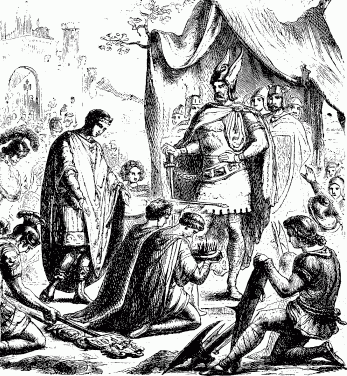Today, I felt a strong
desire to respond to the BBC’s recent point of view article titled “A long
winter for Christians in the Middle East” for the sake of offering an alternative angle
on an otherwise interesting article IMHO. The reader should be warned that we are
delving into very deep and passionate mire of social science and theology with
a dash of Middle Eastern dynamic, all subjects worthy of knowledge harvesting.
If any or all of these subjects give you indigestion, you are free to go on to
other articles on this blog.
In a recent BBC point of view article, William Dalrymple (a Scottish catholic travel writer) talks
about how the “Arab Spring” has given rise to a winter for the Middle East’s 14
million strong Christians, forcing mass emigrations on scale never before seen since
the Iraq war of 2003. As protests morphed to armed struggles and opposition
forces become more radicalised in different states, the spirit of communal
activities and togetherness has seemingly been torn apart (maybe forever) in many Arab
and Middle-Eastern states, particularly in Syria.
Mr. Darymple goes on to illustrate the dimensions of this
communal spirit in these areas, mentioning Mughal art sporting apparently
Christian scriptural quotations (which he rightly points out are probably from
non-canonical texts which have been rejected by mainstream Christians but have somehow been incorporated into Islamic thought).
 |
| An example of Mughal art depicting the crowning of a new ruler. All in all, they are quite beautiful (Commons) |
It is here that the article finally reaches a crescendo of
reasoning; Mr. Dalrymple talks about a Mughal manuscript dating back to the 16th
Century that now resides in the British Library that contains an illustration
of the Nativity but with features that are undeniably Qur’anic (i.e. oasis and
palm trees instead of a stable) in nature. With this, the author further
reasons that this picture shows how much devotion that Muslim rulers apparently
showed to the Christians’ Lord and that it is above the simplistic thinking associated with the ‘clash
of civilisations’ (he mentions Samuel Huntington’s book and theory by the same name).
In short, ladies and gentleman; Christians and Muslims both
believe in the Nativity and therefore Christmas is Mr. Dalrymple’s solution for
rebuilding a brotherly foundation between these two communities. He delivers
the coup de grace at the end of the article where he describes the commonality
of these groups is “... to gather around the Christ child and pray for peace.”
This is a dramatic piece of theological mediation with a
major flaw, a flaw that has cost Syrians once and is now being put forward
again to risk them again (this time by a writer and not a
diplomat/politician). There was a time when people hoped that the Sunni rebel
fighters would identify with national unity, commonality with the diversity of
their country and other secular ideals to win the fight against tyranny.
Instead, we have a rebel force that is further being assimilated into radical Islamism,
fuelled by the socio-religious and cultural differences between communities as
well as better organisation and funding. Now Christmas is being touted (I
sincerely hope not by politicians eventually) as a foundation for peace in the
hope that the rebel Islamist fighters would identify with the Nativity and stop
fighting. If even Ramadhan could not stop the fighting, what hope is there in
relying on a tradition that is more prominently associated with Christians than
with Muslims? We cannot afford to force-build on flimsy foundations.
Instead, I offer my own, alternative theological argument;
both sides view Jesus as a figure of authority. He once said we should love our
enemies. This can therefore be used as a basis of peace because it is more of a
command than a theological tradition. The catch; it is more closely identified
with Christians than with Muslims (perhaps the moderates might accept it but
they are rapidly being assimilated or swept away by radicals). Nevertheless,
enforcing this fundamental commandment into both sides’ psyche might be the
only way to build a reasonably more solid foundation than Mr. Dalrymple’s
tradition argument for peace.
Finally, with regard to the clash of civilisations, I have this to say; neighbours are different just as civilisations are different. Despite those differences, we tend to coexist because not only is it beneficial to communal peace and prosperity but also because it is morally more praiseworthy. But clashes are there in the form of friendly arguments at the market place or bazaar (this is from experience). We can prevent those clashes from becoming more serious by nurturing trust, freedom of thought and respect for life (with a scriptural base to boost). These are the keys to a solid foundation that will prevent things like this from happening.









